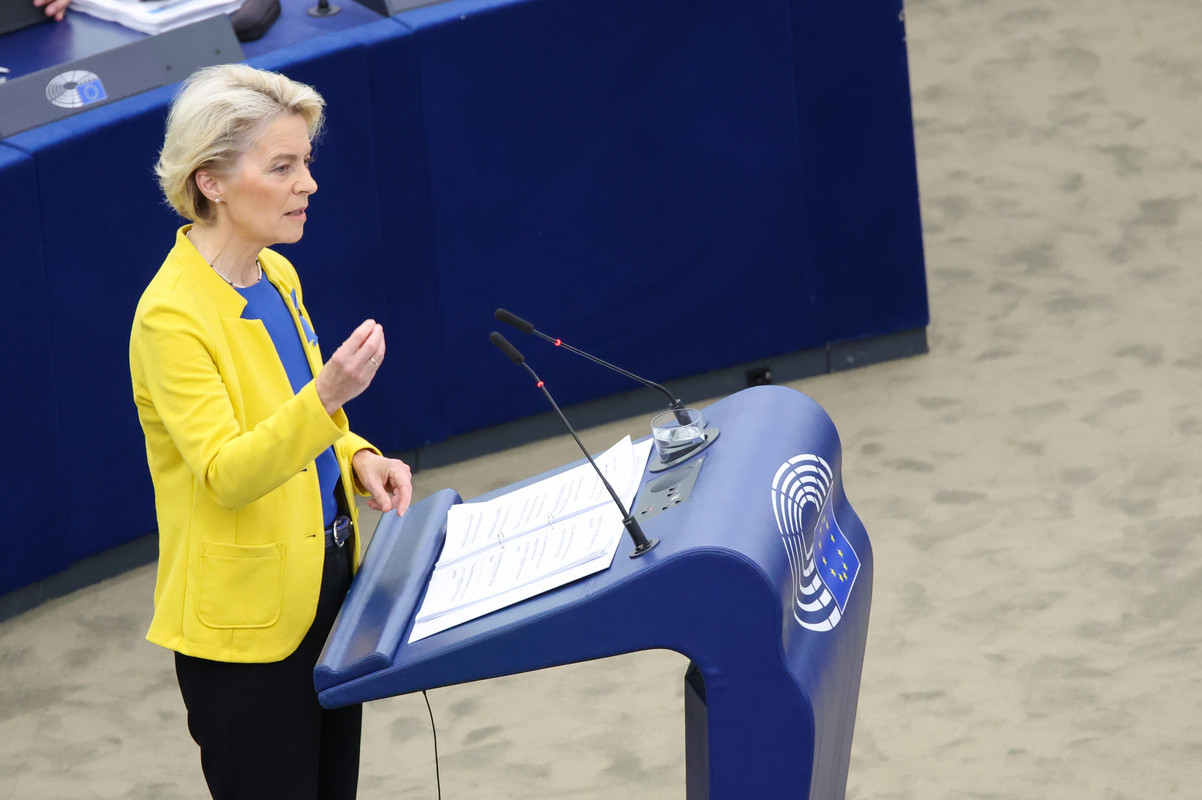European Commission President Ursula von der Leyen announced several new initiatives of direct relevance for the cycling industry in her annual ‘State of the Union’ address to the European Parliament last week.
The war in Ukraine and boosting sovereignty in an increasingly unstable global environment were obviously at the forefront of the EU’s headline concerns; the solutions and challenges this situation raises nonetheless place cycling at a new level when it comes to delivering answers.
The timing of this speech is important because CIE together with our EU association partners is working on an EU Cycling Strategy to pinpoint where the EU’s challenges and industry solutions meet. In this briefing we provide a quick overview of the key elements for our strategy in von der Leyen’s statement.
“We did not get rid of our dependency on oil”
The global energy crisis warrants rapid responses from the EU executive, prompting von der Leyen to highlight the urgent need to reduce energy and fossil fuel consumption, alongside measures to cap energy company revenues, reform the energy market and develop hydrogen fuel.
We have already highlighted to policy makers that cycling alone can reduce Russian oil dependency by 12% using existing products and technologies and saves three billion litres of fuel each year. These messages ensured that cycling featured prominently among the strong recommendations for the EU’s energy saving plan. Von der Leyen’s reinforcement of the savings message helps get policy support for more people on bikes but it can only become a reality if the industry is vocal and committed to engaging in EU policy discussions - where mobility industry giants are fighting for attention and their business models.
“Lithium and rare earths will soon be more important than oil and gas”
President von der Leyen’s announced that the Commission will be drawing up a much awaited Critical Raw Materials Act. The EU has heard the call that high dependency on China for the supply - 90 % of rare earths and 60 % of lithium – could render industrial supply chains, and by extension, Europe’s capacity to meet the green deal objectives, highly vulnerable.
As such, the European Commission will identify strategic projects all along the supply chain, from extraction to refining, from processing to recycling, and seek to build strategic reserves where supply is at risk. The cycling industry’s involvement in fine-tuning this crucial piece of legislation will be essential to secure supply to deliver e-bikes.
“Let's make sure that the future of industry is made in Europe”
A revamped focus on skilled workforces, industry digitalisation and support for industrial investment: these themes raised by the head of the EU executive will all hit home in European cycling industry circles, with many companies keen to revamp their production lines if the right incentives are put in place at EU level. The EU needs to be aware about what these incentives consist of and avoid engaging in counter-productive policy measures that would undermine a fragile supply and distribution chain.
Re-shoring bicycle production to Europe is very much in the spotlight since the 2020-2021 spike in demand exposed the vulnerability of cycling’s global supply chain. There are currently numerous barriers for reshoring on a large scale, but the growing EU interventions are expected to help the market change the balance. CIE will be monitoring these new initiatives and their impacts closely for our members.
Support for cycling is an obvious answer to the EU’s headline priorities: the cycling industry must now make a big step towards Europe
Cycling is undoubtedly part of the solution when it comes to reducing the EU’s dependency on fossil fuels. The Commission President’s announcements on access critical raw materials and re-shoring clearly address key cycling industry topics and concerns. The verdict is simple: growing cycling in Europe aligns with the EU’s top priorities and there are going to be significant opportunities with the funding and regulation that will support these policies. This was already proven with €1.7 billion new funding allocated in EU resilience and recovery plans.
However, the processes will not stop with these positive messages. As Europe faces an urgent energy crisis and strives to redevelop its industrial capacity, one should take close note that von der Leyen reported that around 700 billion euros’ worth of funding earmarked to support Europe’s green and digital transition has been allocated but not spent yet, including much of the cycling allocation. Good news for more cycling growth when it does arrive on the ground in the next few months, but the process at local level needs to move faster.
Cycling Industries Europe is urging European politicians to speed up and increase this direct funding towards safe cycling infrastructure and support a growing European industry overcome critical challenges. Effective change however, can only become a reality if engaged industry players proactively seize the funding and policy opportunities devised in Brussels by working with Cycling Industries Europe and fellow industry stakeholders
Share on Linkedin Share on Facebook Share on Twitter Subscribe to our newsletter